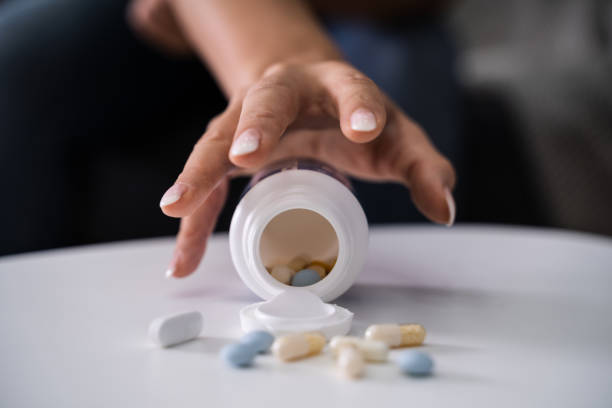Amphetamines are a group of synthetic stimulant drugs that have a profound impact on the central nervous system. Initially developed for medical purposes, such as treating attention deficit hyperactivity disorder (ADHD) and narcolepsy, they are now frequently misused for recreational purposes. This article aims to shed light on the hidden dangers of amphetamine abuse, exploring both short-term and long-term effects, as well as the impact on individuals and society as a whole.
What are Amphetamines?
Amphetamines are a group of synthetic stimulants that impact the central nervous system. They are commonly prescribed for medical conditions like attention deficit hyperactivity disorder (ADHD) and narcolepsy due to their ability to increase focus and alertness.
Medical Uses of Amphetamines
Under proper medical supervision, amphetamines can be beneficial in managing specific conditions. They work by affecting certain neurotransmitters in the brain, promoting wakefulness and improved concentration.
Amphetamines as Stimulants
As stimulants, amphetamines increase the release of dopamine and norepinephrine, resulting in heightened energy levels and euphoria.
Forms of Amphetamines
Amphetamines are available in various forms, including tablets, capsules, and powders. The most common brand names include Adderall and Dexedrine.
At i-Kare Treatment Center, we are dedicated to providing comprehensive addiction treatment services in the state of Florida. Our team of experienced professionals is committed to helping individuals overcome addiction and regain control of their lives.
If you or a loved one is going through a hardship due to substance abuse, call us or Book a Consultation.
The Misuse and Abuse of Amphetamines
Reasons for Amphetamine Abuse
Amphetamine abuse often stems from the desire to experience intense pleasure, increased energy, or enhanced performance. Some individuals may misuse these drugs to stay awake longer or achieve a sense of euphoria.
Prevalence of Amphetamine Abuse
Amphetamine abuse is prevalent across different age groups, occupations, and socioeconomic backgrounds. It is a problem that affects both urban and rural communities.
Short-Term Effects of Amphetamine Abuse
The short-term effects of amphetamine abuse include:
- increased heart rate
- elevated blood pressure
- decreased appetite and
- hyperactivity
However, these effects can be dangerous when the drug is taken in excessive amounts.
Long-Term Effects of Amphetamine Abuse
Long-term amphetamine abuse can lead to severe health issues, such as:
- cardiovascular problems
- malnutrition
- and mental health disorders like anxiety and depression
Recognizing Amphetamine Abuse
Signs and Symptoms
Identifying amphetamine abuse can be challenging, as individuals may attempt to hide their usage. Common signs include:
- erratic behavior
- frequent mood swings and
- changes in sleeping patterns
Physical and Behavioral Indicators
Physical indicators of amphetamine abuse include:
- dilated pupils
- weight loss and
- dental problems
Behaviorally, individuals may become secretive, agitated, or isolated.
Impact on Mental Health
Amphetamine abuse can exacerbate pre-existing mental health conditions or trigger new ones, making it essential to address both the substance abuse and any underlying psychological issues.
The Dangers of Amphetamine Addiction
Physical Health Risks
Amphetamine addiction can lead to severe physical consequences, including heart attacks, strokes, and organ damage.
Mental Health Consequences
Chronic amphetamine abuse can result in psychosis, paranoia, and cognitive impairment, affecting an individual’s ability to function in daily life.
Social and Relationship Effects
Amphetamine addiction can strain relationships with family, friends, and colleagues, often leading to social isolation and a breakdown in personal connections.
At i-Kare Treatment Center, we are dedicated to providing comprehensive addiction treatment services in the state of Florida. Our team of experienced professionals is committed to helping individuals overcome addiction and regain control of their lives.
Seeking Help and Treatment
Approaching a Loved One about Amphetamine Abuse
Confronting a loved one about their amphetamine abuse requires sensitivity and empathy. Expressing concern and offering support can encourage them to seek help.
Professional Treatment Options
Treatment for amphetamine addiction may involve therapy, counseling, and support groups. In severe cases, medical detoxification and inpatient rehabilitation may be necessary.
Overcoming Amphetamine Addiction
Recovery from amphetamine addiction is a challenging journey, but with determination and a strong support network, it is possible to achieve lasting sobriety.
At i-Kare Treatment Center, we are dedicated to providing comprehensive addiction treatment services in the state of Florida. Our team of experienced professionals is committed to helping individuals overcome addiction and regain control of their lives.
Prevention and Education
Raising Awareness about Amphetamine Abuse
Education and awareness campaigns play a crucial role in preventing amphetamine abuse, especially among young individuals.
Reducing Access to Amphetamines
Stricter regulations on the prescription and distribution of amphetamines can help reduce the availability of these drugs for illicit use.
Early Intervention Strategies
Identifying amphetamine abuse in its early stages and intervening promptly can prevent the development of severe addiction.
Conclusion
Amphetamine abuse poses significant risks to physical and mental health, as well as overall well-being. Recognizing the signs of amphetamine abuse and seeking help promptly are crucial steps towards recovery and a healthier life.
If you or a loved one is going through a hardship due to substance abuse, call us or Book a Consultation.



